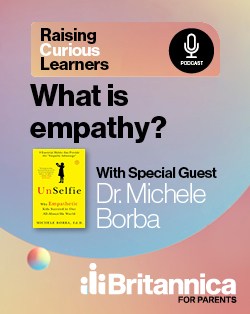The personal is political
Our editors will review what you’ve submitted and determine whether to revise the article.
Join Britannica's Publishing Partner Program and our community of experts to gain a global audience for your work!The personal is political, also called the private is political, political slogan expressing a common belief among feminists that the personal experiences of women are rooted in their political situation and gender inequality. Although the origin of the phrase “the personal is political” is uncertain, it became popular following the publication in 1970 of an essay of the same name by American feminist Carol Hanisch, who argued that many personal experiences (particularly those of women) can be traced to one’s location within a system of power relationships. Hanisch’s essay focused on men’s power and women’s oppression; for example, if a particular woman is being abused by a male partner, then societal oppression of women is an important factor in explaining this abuse. The statement sometimes is misinterpreted, however, as the opposite—that women’s personal behaviour is of political significance.
Origin
Hanisch was not the first to suggest that personal experiences are the result of social structures or inequality. In 1959 American sociologist C. Wright Mills published The Sociological Imagination, in which he argued that individual experiences are inextricably connected with the greater social and historical context. If an individual is unemployed, then that unemployment may be related to larger patterns of unemployment in that society. This focus on contextual factors is important in the social sciences. In The Feminine Mystique (1963), American author and feminist Betty Friedan referred to “the problem that has no name,” in which women felt constrained, unsatisfied, and unhappy in their roles as wives, mothers, and homemakers. Although this dissatisfaction was often treated as a personal problem both by the women themselves and by doctors, Friedan blamed it on the position of women in society. Although The Feminine Mystique was arguably specific to white middle-class women, the book came to be considered canonical in feminist history and theory. Friedan’s arguments became highly influential for second-wave feminism (a period of feminist activity especially prominent during the 1960s and ’70s).
At the time Hanisch was writing, the male-dominated political left often posed an opposition between personal and political issues; thus, if women held a discussion group around personal issues, it was derisively referred to as “therapy,” a designation she thought was misguided. In actuality, Hanisch argued, women’s personal problems were political problems, inasmuch as they were caused by women’s inequality; women themselves were not to blame. By extension, the problems could not be solved by personal solutions but only by social change. Many feminist groups embraced this idea. For instance, the radical feminist organization Redstockings claimed that women failed to see their situation as a political condition: a class hierarchy, with men placed above women. Similarly, the Combahee River Collective, a black organization, stressed that its feminism included insights that were gleaned from members’ personal experiences with racism and sexism. Other documents from that period feature similar arguments.
Impact
The statement that “the personal is political” was influential in second-wave feminism, shaping the development of social analyses and theories, encouraging new types of activism, and widening the scope of issues that could be defined as “feminist issues.” For example, it was one of the premises underlying the creation of feminist consciousness-raising groups, which met to discuss topics such as careers or parenting, sharing their personal experiences and generating new knowledge based on those experiences. This knowledge was the basis for further activism. Hanisch herself stressed that an interplay of action and theory, sometimes called praxis, is key to the development of good theory.
The idea that the “personal is political” continued to influence later feminist theorizing. For example, American feminist scholar and activist bell hooks stressed the origins of feminist theory in women’s personal experiences. To this end, she discussed her own childhood experiences as a young black girl, in which she felt constrained in her family by gender ideologies. Because hooks could not identify or communicate with her family regarding this, she responded by engaging in a childlike version of “theorizing” to better understand her condition. Theory and politics were not distant and abstract relative to her personal life; rather, they were intimately connected. Similarly, American sociologist Patricia Hill Collins characterized the features of “Black feminist epistemology” as “lived experience as a criterion of meaning.” She argued that among many black women, personal experience was treated as being more epistemologically valuable than science or theory because it was based on immediate reality.
At the beginning of the 21st century, “the personal is political” was implicit in the understanding of various feminist issues that might otherwise have been seen as merely “personal”—for example, the association of thinness with a woman’s success.
Christopher J. KellyLearn More in these related Britannica articles:
-
C. Wright Mills
C. Wright Mills , American sociologist who, with Hans H. Gerth, applied and popularized Max Weber’s theories in the United States. He also applied Karl Mannheim’s theories on the sociology of knowledge to… -
 The Feminine Mystique
The Feminine MystiqueThe Feminine Mystique , a landmark book by feminist Betty Friedan published in 1963 that described the pervasive dissatisfaction among women in mainstream American society in the post-World War II period. She coined the termfeminine mystique to describe the societal assumption that women could find fulfillment through housework, marriage, sexual… -
 Betty Friedan
Betty FriedanBetty Friedan , American feminist best known for her bookThe Feminine Mystique (1963), which explored the causes of the frustrations of modern women in traditional roles. Bettye Goldstein graduated in 1942 from…
